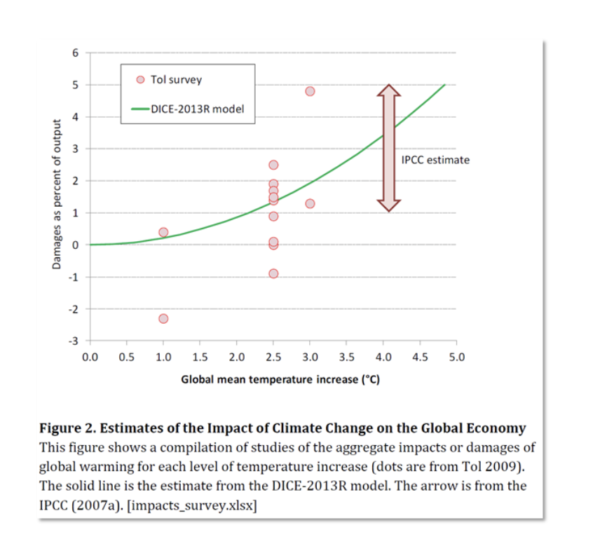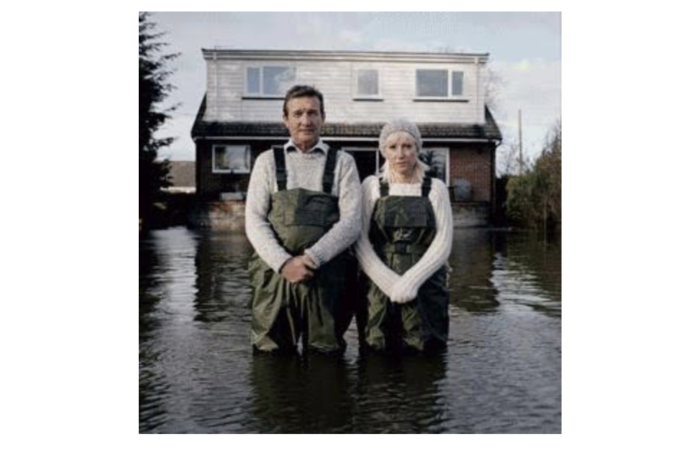One of the demands of the SS4C movement has been more climate change education. In my view, climate education can largely acheived by negating the misinformation from the corporate propaganda system. There are some books like The New Climate War by climate scientist Michael Mann that go over some of this misinformation. But the outdated strategies like denial or deflections onto personal consumption instead of politics only covers a small part of the overall misinformation machine. Climate science isn’t well situated to deal with the rest of the miseducation. This includes I’m going to write about here. Which is the much repeated lie about how much it costs our society, economically, to deal with climate change. Just about every major cultural institution in our society has played some role in this misinformation campaign on climate change. I’ll go through as many as I can currently think of here.
We could start with politicians like Chris Hipkins, who in regards to the fuel tax cut says that:
There is the obvious fact that it could just be dealt with by reversing the redistribution over the last few decades, and that they could cut a more regressive tax like GST instead of fuel taxes. We could also go further, and observe that the energy sector has turned into a business cartel. Since the neoliberal reforms in 1986, productivity has decreased by around 30-40% in this sector, while prices have gone way up specifically for residents. When you do an analysis of prices with other nations in the OECD, prices have gone up a lot, comparitively. The economist Geoff Bertram points out that the energy sector has an interest in blocking renewable development like wind farms, as they profit from less energy supply.
There is a view by an economist Robert Pollin, that each major country needs to spend about 2.5% of GDP every year to achieve net zero emissions by 2050. We could call this a global green new deal, where the idea is to implement progressive economic policies while transitioning to renewables. This cost is entirely offset from the millions of deaths caused by air pollution every year and it’s burden to the health system. According to an IMF study:
“With efficient fuel prices in 2025, projected global CO2 emissions are reduced 36 percent
below baseline levels, fossil fuel air pollution deaths 32 percent (saving 0.9 million lives
annually), tax revenues are higher by 3.8 percent of global GDP, and there are net
economic benefits (environmental benefits less economic costs) of 2.1 percent of global
GDP. “
Another troubling framework is that has been used is the idea that reductions in consumption implies making personal sacrifices. Many have accepted this framework, especially on the political left. We could prefer to live in a society where we make personal sacrifices like flying less, (I personally would), but have we exausted all other options when it comes to reducing consumption?
Is reducing the levels of advertising in our society going to decrease or increase an individuals quality of life? Well, that depends if people want things like green washing or children nagging them to buy them things. There are plenty more examples where reducing consumption can or may lead to a higher quality of life. Similarly, the converse is true. A higher quality of life can lead to decreased consumption. There are studies that show people who work less hours consume less, for example. This and many other examples are talked about in chapter 5 of Jason Hickels book Less is More, or you could read his blog.
In the economics profession there has been some serious failure when it comes to accounting economic costs of climate change. William Nordhaus is an economist who wrote a book called “The Climate Casino”. An alternative title to William Nordhaus’ book could have been “Dr. Nordhaus or: How I Learned to Stop Worrying and Love Global Warming”. There have been many critiques of Nordhaus’ work, but perhaps the most scathing is one from Steve Keen. In terms of it’s consequences, it’s one of the more extreme exposures of arrogance and pseudoscience that you could come across. Lets retread parts of Keen’s critique, while adding my own comments.
The fatal flaw in Nordhaus’ book is in chapter twelve, where he describes a function which he calls the damage function, which is supposed to give a rough estimate of how much damage to the economy (in terms of GDP).

The damage in GDP is not per year, it is in total. So for example, a 6 degree global temperature rise is projected to decrease GDP in the economy by 8.5% by 2100, which is about 0.1% per year. In other-words, it will have a barely noticeable effect on the economy.
These estimates are based off research done by Richard Tol, whom he calls a “leading scholar in this area” in The Climate Casino.
The key parts of the methodology made by Tol and other researches are:
- An assumption that roughly 90% of industry is negligibly effected by climate change, because it is indoors or non-coastal.
- The relationship between GDP and temperature between different nations and states within those nations today will be the same relationship between GDP loss and the effects of climate change. Time is not even considered.
It doesn’t take a genius to see how wrong the assumption is in (1). I’m sure people having homes flooded can see that. If you do not see how irrelevant the relationship is in (2), consider what happened in the last ice age. There was a global cooling by 5 to 6 degrees, and the south island was covered by a thick layer of ice. Canada and Qatar have over 5 times that kind of temperature difference, but their GDP per capita are somewhat similar.
From this methodology, we get statements from Tol like “the effects of 1–2°C warming may be positive, incremental impacts beyond that level are likely to be negative.” Pointing to the rise in GDP until around 2 degrees, where it stops going down.
I looked up to see who funds Tol, and was not surprised to see that he works at Bjørn Lomborg’s Copenhagen Consensus Center (CCC). Lomborg has repeatedly been exposed as a cherry picker of data. As in he makes arguments that focus on deaths from cold exposure and ignores air pollution deaths to say climate change is a false alarm. The (CCC) is basically a privately funded think tank for the climate “minimizer” crowd.
The insurance company Swiss Re gives a much more different projection, of around 11% of GDP from 2 degree warming, with places like Indonesia and India losing as much as 40% of their GDP. Consider this in contrast to Nordhaus’ roughly 1% GDP loss according to his damage function.
Well, the insurance companies have gotta get the numbers at least somewhere in the ballpark in order to make a profit. If Nordhaus gets the numbers off by a factor of 11 then it doesn’t really matter because the consequences are shifted over towards those billions of other people.
Nordhaus solution to global warming, according to his 2018 Nobel prize winning lecture, is that a 4 degree rise in global temperatures is the “optimal” target that we should aim for in the year 2150. To get there, he suggests that we must limit ourselves to doing essentially nothing outside of a small carbon tax of around $50 per ton of Co2.
His work is now referred to in introductory economics courses at universities here in New Zealand. New Zealand has likely already gone past the damages that Nordhaus would project that we suffer this century, given our recent cyclone. It has been found that, in the case of the hurricane that Texas endured a few years ago, small increases in rainfall from a hurricane can cause a very disproportionate amount of the damage.
A recent topic of interest is in the consulting industry. Globally, the climate change consulting market is predicted to be worth more than $8.5 billion by the end of 2028. Here too, they have played a role in making up numbers. It is a very rapidly growing industry.
In Mazzucato’s book called The Big Con, there is a chapter devoted to climate consulting companies, like McKinsey. Companies like this one have essentially operated as a new type of corporate propaganda. They are paid by governments, companies, and international organizations like the United Nations Framework Convention on Climate Change (UNFCCC) to provide fake expertise. This has the role of enabling their clients to pretend they are doing something about the environment, while slowing the actual environmentalists down as they have to go through their work and expose the fraud.
Such fake expertise from McKinsey like the report they made for Scott Morrisons government includes saying the global cost will be $275 trillion to reach net zero by 2050. It was quickly pointed out that they do not even bother to take into account the costs of a business as usual scenario. In other words, it would be like if a CEO didn’t know the difference between revenue and profit.
These consulting companies essentially play both sides of the fence. McKinsey is employed by logging industries. This is why they criticize slash and burn agriculture instead of industrial logging. Both bad things for the environment no doubt, but the poor can’t afford to pay the consultants for a counter narrative.
All of these consulting companies profess to have the most noble, selfless, goals. As Mazzucato writes in her book:
Briefing papers have titles such as “The time for climate action is now” and “Sustainable finance: it’s decision time.” “We are in the middle of a climate emergency,” says PwC. “Urgent action is needed to reduce the emissions gap and build resilience to the current and accelerating impacts of climate change.” Every report, every blog post, every pamphlet includes a call to action. BCG urges in one that we “turn the trajectory of greenhouse gas emissions around to ensure that global warming stays within safe limits.” Elsewhere it calls on companies “to move aggressively in support of biodiversity.”
It’s really not unlike the kind of labour party rhetoric that New Zealand has had to deal with for the last few years. As Greta Thunberg put it, “It’s funny that people believe Jacinda Ardern and people like that are climate leaders. That just tells you how little people know about the climate crisis.”
“Douglas Renwick is an activist interested in understanding the problems of 21st century capitalism.





I’ve never read a more jumbled-up, mixed message on climate change. There is interesting information here but it’s hard to find the actual points being made.
Some editing would help too.
I have read widely on this subject and feel this article is trying to be balanced but I can’t find the theme here.
It’s revealed in the title, it’s what it says on the box.
I probably shortened it far too much, the original essay was much longer. But in hindsight it comes off as more bullet points and switching topic too fast. I’ll probably break it into separate essays later. Thanks for letting me know.
The general point I was trying to make was that society would gain economically from a transition to something like a green new deal or what SS4C suggests, despite what people like Lomborg, Tol, Nordhaus, and most politicians claim.
Take care.
My view is that some folks in the science community have gotten so hung up on the fact that some individuals and groups don’t share their views, that it has become an all-out war over ideas.
And all is fair in love and war right?
Glad to see this exposure of ecocidal William Nordhaus. Having staged back my efforts with my Anti Economist League I was pleased to be introduced to the work of Australian Keen with the publication of his book “Debunking Economics” in 2001. Having being a student of economics I changed my opinion that economics was a political dogma to seeing it a psuedo-science. It is not a science because its dependence of assumption, assertion, supposition, presumption, suggestion, purports, estimates, proposing, pretending, and “a hunch”. Economics has all the signs of being a religion with religions dependence on “faith”. Not only that I have come to the conclusion that economics is a cult. Scientists have ignored economics because being polite they have not bothered to scrutinise economics before. There are many Youtube lectures and commentary by Steve Keen on the internet.
Exactery. And maybe it’s time for scientists to be a little less polite.
Both amusing and sad that the San Francisco hippies ended up in Jonestown in search of some sort of higher power.
Politicians, so-called public servants and ‘economists’ are on a similar track. Not even when the bleeding bloody obvious is nipping at their ankles, or when the facts change (hat tip Bernard Hickey) will they question their faith
“I have come to the conclusion that economics is a cult.”
It’s smorgasbord of cults, pick your flavour.
hear hear bielski couln’t have put it better myself
Douglas Renwick – Great information, but, this could be used to make NZ pay billions ($) in damages to Pacific nations, despite the fact NZ only provides 0.5% of the world’s Greenhouse Gases…I am wrong?
The science, business, ecomomic, politics of climate may have negligible effect on halting global warming. However building dykes and floodbanks will contribute positively to the always present goal of GDP growth.